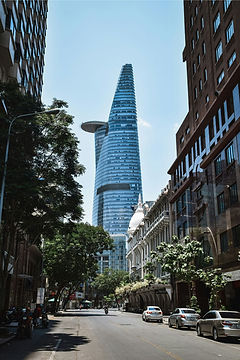About the fund
Tundra Sustainable Frontier Fund invests in early-stage emerging markets - so-called frontier markets. These include countries such as Vietnam, Pakistan, Egypt, Sri Lanka, and Bangladesh. In these markets, progress is driven by young populations gaining greater access to education, better working conditions, and higher living standards. Our vision is to deliver solid financial returns by investing in competitive companies whose products and services will see rising demand over time - businesses with principled controlling shareholders and capable management teams that account for their environmental impact and treat employees well. These are companies that create a positive impact in the communities where they operate, which we consider a cornerstone of lasting success.
NAV & details
About the fund
The Fund is a global equity fund with a dedicated focus on investments in emerging and frontier markets. Its management seeks to provide exposure to the economic development of these markets and aims to deliver returns above the MSCI Frontier Markets ex GCC Net Total Return Index, at a comparable or lower level of risk.
Fund management company: Tundra Fonder AB
Custody: SEB
Sustainability classification: SFDR 8 (light green)
Portfolio Managers
What makes frontier markets compelling
Three reasons - structural growth, diversification, and value. Young populations, urbanization, and rising productivity drive long-term earnings growth; returns do not always track developed markets; and many quality companies still trade at a discount.
Tundra defines frontier markets as the World Bank’s low-income and lower-middle-income countries. These nations account for 50% of the world’s population today, and UN projections suggest that in 50 years they will make up two thirds. A large share of the world’s future infrastructure will need to be built in these countries. Their per-capita emissions are currently about one tenth of those in the richest economies. It is clear the planet cannot afford a scenario where their emissions rise to today’s levels in wealthy countries; at the same time, holding back their development is not the answer. Building long-term growth on sustainable business models is therefore essential for their future - and it should be a priority for those of us in the richest economies to support that process, if not for their sake, then for our own.
We look for companies in these countries that are positioned to lead this development while generating strong returns for our unitholders - what we call investing for the future. To advance this vision, we anchor our work in the 17 Sustainable Development Goals (SDGs) under the UN 2030 Agenda, meaning the fund selects companies that have a positive impact on the societies in which they operate. Tundra’s overriding focus is to help our portfolio companies integrate into the global economy and become more attractive to international investors. We believe this approach benefits our unitholders, the communities where we invest, and the world at large.
Read more about Tundra’s sustainability work under Sustainability and Sustainability-Related Disclosures.


Frontier markets
A new generation of growth markets are emerging. Frontier markets are the next generation of emerging markets that include countries such as Vietnam, Bangladesh, Pakistan, Sri Lanka, Nigeria and Egypt. These are countries that come from a low level of economic development, but which have undergone a transformation in the last decade and now are among the fastest growing economies in the world. Tundra’s definition of frontier markets are countries defined by the World Bank as low-income or lower-middle-income countries. These countries currently make up 50% of the world’s population, but according to UN estimates, by 2070 they will make up almost 70% of the population. Most of what we read about these countries is about the problems, but the fact is that between 2008-2018, the proportion of people living in extreme poverty in lower-middle-income countries decreased from 27% of the population to 11%. A new generation of workers and consumers are emerging. In the coming decades, a large part of the world’s factories, roads, hospitals, schools and shopping malls will be built in these countries. This suggests that economic activity will be higher than in the rest of the world. Tundra invests in the best companies in these countries that benefit from this development.
Economic growth in frontier markets is driven by:
Demographics
Frontier markets have young and fast growing populations. Today, frontier markets represent close to 50% of the global population but according to UN:s population estimates, by 2070 their share of the world population will have increased to close to 70%. People in countries such as Pakistan, Egypt and Sri Lanka are also becoming better educated. Education contributes to higher levels of productivity and a more sustainable economic growth.
Urbanisation
Frontier markets are going through an urbanisation trend – gradually more and more people are moving from rural to urban areas. As this transition takes place, infrastructure investments increase, children and youths get access to modern education, and a growing proportion of consumption takes place through the formal economy in super markets and department stores rather than through local markets. In countries such as Sri Lanka, Pakistan and Bangladesh, approximately 40% of the population is urbanised compared to 80% in Western Europe and the US.
Infrastructure investments
Infrastructure investments take place continuously in frontier markets. Reliable power supply is ensured, road networks are expanded and a growing section of the population gets access to computers and telecommunication.
Foreign direct investments
Foreign direct investments in frontier markets have expanded over the past decades. For several years now, Nike produces more shoes in Vietnam than in China and Samsung Electronics, the South Korean electronics giant, produces half of its handsets in Vietnam. We recognise this pattern from history – Japan, South Korea, Taiwan and China have already gone through this phase. Now it is time for countries such as Vietnam, Bangladesh and Pakistan to take their turn.
Rising political stability
We tend to associate countries in Africa, Asia and other developing parts of the world with political instability. This is only partially true. Never before has Africa had so many democratic governments as today. In addition, the number of armed conflicts has seen a decline in the past decade.
Uncharted territory
Frontier equity markets are still dominated by domestic investors. The number of foreign pension funds, insurance companies and asset managers which are active in frontier markets is limited. These markets are largely still uncharted territory. The limited number of foreign investors also means that frontier equity markets tend to be less analysed. For long-term investors it creates opportunities to find under-researched and undervalued companies that over time, as the economies grow, will attract more foreign capital.
Limited foreign investor participation also contributes to frontier markets having relatively low correlation with other equity markets and asset classes. Replacing a portion of a global equity portfolio with frontier markets can contribute to reducing the overall risk level of the portfolio while maintaining returns.


Investment philosophy
Our investment selection follows traditional fundamental analysis, and our funds are actively managed. We invest only in companies that meet three criteria. First, we require responsible, honest owners and a competent management team with a proven ability to navigate different market conditions; as shareholders, we must be confident that the people running the company act in the interests of all owners. Second, the company’s products or services should be in structural growth - demand should be expanding faster than the underlying economy - and our analysis considers both the offering itself and how it is produced, including its impact on the environment and employees. Third, the company must have a positive impact on the society in which it operates; this is central to our sustainability analysis and crucial for financial performance. In our markets, after corporate governance risks, the risk of government interference is typically the highest; companies that help society develop face a significantly lower likelihood of such intervention.
Tundra Fonder has no restrictions on the proportion of the portfolios that may be invested off benchmark. This also means there will be periods when we lag competitors. We believe that the willingness to risk being “wrong,” not only for individual quarters but even for years, is essential to creating strong long-term returns. Our products are not intended for investors seeking short-term stability or index-like performance; such investors may be better served by low-volatility hedge funds or index funds.


